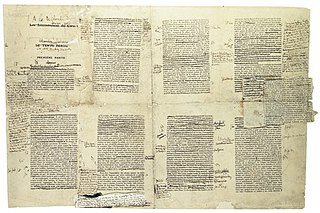
In Search of Lost Time, first translated into English as Remembrance of Things Past, and sometimes referred to in French as La Recherche, is a novel in seven volumes by French author Marcel Proust. This early 20th-century work is his most prominent, known both for its length and its theme of involuntary memory. The most famous example of this is the "episode of the madeleine", which occurs early in the first volume.

Slaughterhouse-Five, or, The Children's Crusade: A Duty-Dance with Death is a 1969 semi-autobiographic science fiction-infused anti-war novel by Kurt Vonnegut. It follows the life experiences of Billy Pilgrim, from his early years, to his time as an American soldier and chaplain's assistant during World War II, to the post-war years. Throughout the novel, Billy frequently travels back and forth through time. The protagonist deals with a temporal crisis as a result of his post-war psychological trauma. The text centers on Billy's capture by the German Army and his survival of the Allied firebombing of Dresden as a prisoner of war, an experience that Vonnegut endured as an American serviceman. The work has been called an example of "unmatched moral clarity" and "one of the most enduring anti-war novels of all time".
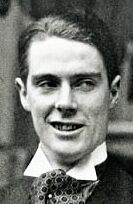
Anthony Dymoke Powell was an English novelist best known for his 12-volume work A Dance to the Music of Time, published between 1951 and 1975. It is on the list of longest novels in English.
Gerald de l'Etang Duckworth was an English publisher, who founded the London company that bears his name. Henry James and John Galsworthy were among the firm's early authors.
A Dance to the Music of Time is a 12-volume roman-fleuve by English writer Anthony Powell, published between 1951 and 1975 to critical acclaim. The story is an often comic examination of movements and manners, power and passivity in English political, cultural and military life in the mid-20th century. The books were inspired by the painting of the same name by French artist Nicolas Poussin.

Jonathan Cape is a London publishing firm founded in 1921 by Herbert Jonathan Cape (1879–1960), who was head of the firm until his death.
A book series is a sequence of books having certain characteristics in common that are formally identified together as a group. Book series can be organized in different ways, such as written by the same author, or marketed as a group by their publisher.
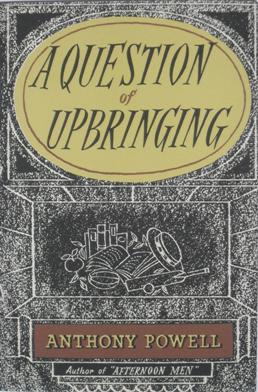
A Question of Upbringing is the opening novel in Anthony Powell's A Dance to the Music of Time, a twelve-volume cycle spanning much of the 20th century.

A Buyer's Market is the second novel in Anthony Powell's twelve-novel series A Dance to the Music of Time. Published in 1952, it continues the story of narrator Nick Jenkins with his introduction into society after boarding school and university.

Lady Violet Georgiana Powell was a British writer and critic. Her husband was the author Anthony Powell.

The Acceptance World is the third book of Anthony Powell's twelve novel sequence, A Dance to the Music of Time. Nick Jenkins continues the narration of his life and encounters with friends and acquaintances in London, between 1931 and 1933. In an analysis of Powell's absorbing interest in literary and visual art Kerry McSweeney highlights his use of a reference to Joseph Conrad in a virtuoso description of a private hotel in Bayswater.

At Lady Molly's is the fourth volume in Anthony Powell's twelve-novel sequence, A Dance to the Music of Time. Winner of the James Tait Black Memorial Prize 1957, At Lady Molly's is set in England of the mid-1930s and is essentially a comedy of manners, but in the background, the rise of Hitler and of worldwide Fascism are not ignored. The driving theme of At Lady Molly's is married life; marriages – as practised or mooted – among the narrator's acquaintances in bohemian society and the landed classes are pondered. Meanwhile, the career moves of various characters are advanced, checked or put on hold.

The Valley of Bones is the seventh novel in Anthony Powell's twelve-volume series A Dance to the Music of Time. Published in 1964, it is the first of the war trilogy.

The Soldier's Art is the eighth novel in Anthony Powell's twelve-volume masterpiece A Dance to the Music of Time, and the second in the war trilogy. The title is from the poem by Robert Browning, Childe Roland to the Dark Tower Came, fifth line, “think first, fight afterwards – the soldier’s art.”

Books Do Furnish a Room is a novel by Anthony Powell, the tenth in the twelve-novel sequence A Dance to the Music of Time. It was first published in 1971 and, like the other volumes, remains in print.

Hearing Secret Harmonies is the final novel in Anthony Powell's twelve-volume series, A Dance to the Music of Time. It was published in 1975, twenty-four years after the first book, A Question of Upbringing, appeared in 1951. No other novel series is based on the formal pictorial principles as A Dance to the Music of Time. The book ends with a torrential passage from The Anatomy of Melancholy by Robert Burton.
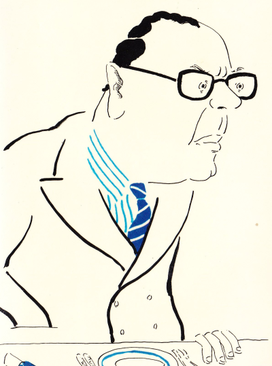
Kenneth Widmerpool is a fictional character in Anthony Powell's novel sequence A Dance to the Music of Time, a 12-volume account of upper-class and bohemian life in Britain between 1920 and 1970. Regarded by critics as one of the more memorable characters of 20th century fiction, Widmerpool is the antithesis of the sequence's narrator-hero Nicholas Jenkins. Initially presented as a comic, even pathetic figure, he becomes increasingly formidable, powerful and ultimately sinister as the novels progress. He is successful in business, in the army and in politics, and is awarded a life peerage. His only sphere of failure is his relationships with women, exemplified by his disastrous marriage to Pamela Flitton. The sequence ends with Widmerpool's downfall and death, in circumstances arising from his involvement with a New Age-type cult.

The Gap in the Curtain is a 1932 borderline science fiction novel by the Scottish author John Buchan. Part of the action is autobiographical, featuring the agonies of a contemporary up-and-coming politician. It explores the theory of serial time put forward by J W Dunne: Buchan had been reading An Experiment with Time.

Beatrice Inez Lisette (Paget) Holden was a British writer and Bohemian social figure and journalist, also known for her association with George Orwell. Born at Wellesbourne, Warwickshire to Wilfred Millington Holden and Beatrice Mary Byng Paget, with an elder brother, Wilfred Herbert, born in 1902, she was a cousin of the twins Celia Mary and Mamaine, who became Arthur Koestler's second wife. Her first memory was her father shooting at – and missing – her mother; their relationship was a fraught one, as was Holden's own relationship with her mother, who was considered to be the second best horsewoman in England. She kept fifteen chargers, but although her extravagant nature allowed her to visit the Ritz when in London, her daughter did not benefit from it. According to Bluemel, Holden's status as 'a dropout from the gentry class who worked as both factory hand and intellectual' is a contributing factor in the value of her work both generally speaking and for feminist scholars.
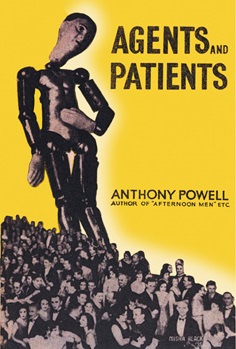
Agents and Patients is the fourth novel by the English writer Anthony Powell. It combines two of the aspects of 1930s life, film and psychoanalysis. In what Powell himself has acknowledged is a roman a clef of sorts, a comically critical eye is cast across entre deux guerres society and its often self-indulgent, usually unsatisfied quest for contentment.

















